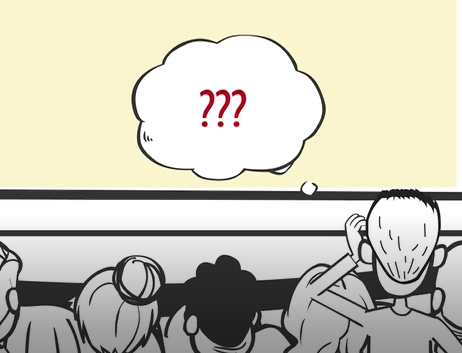Quiz #09:
Was slavery totally abolished in the united States of America?

This page changed with the May 07, 2024 edit.
To move all ads to bottom of screen, shrink the window width
Be part of the success!
Help spread the word!

This page changed with the May 07, 2024 edit.
The details are found in The Constitution, Amendment 13, Section 1: "Neither slavery nor involuntary servitude, except as a punishment for crime whereof the party shall have been duly convicted, shall exist within the United States, or any place subject to their jurisdiction."
We know that slavery does not violate Amendment 8's cruel or unusual punishment clause, so long as the accused is duly convicted. We know this because Amendment 13 comes after Amendment 8 to clarify that the content of 13 is not subject to the limitations of 8, which states: "Excessive bail shall not be required, nor excessive fines imposed, nor cruel and unusual punishments inflicted."
Amendment 13 authorizes the use of slavery and involuntary servitude, solely for punishing criminal activity. But, the catch to its use is that the accused person must be duly convicted. Thus making the punishment more severe than the rewards of the crime.
In short, a duly convicted person cannot have their rights violated in order to get that conviction: Plea Bargains violate Amendment 5's, "[No person] shall be compelled in any criminal case to be a witness against himself". Threatening a person with a more severe sentence (usually while held in jail) if they take their case to trial, as opposed to the lightest sentences if the confess (usually to an act that the constitution protects), thus making the law prohibiting that action the true crime.
Unwarranted search and or seizure of property or person, Violate Amendment 4. Probable cause is not enough to do an automatic search or seizure; it is enough to get the warrant. "... and no Warrants shall issue, but upon probable cause, supported by Oath or affirmation, and particularly describing the place to be searched, and the persons or things to be seized."
We see that by definition, reasonable and warrantable require some justifiable elements. Enforcing an UNCONSTITUTIONAL law or order is far from justifiable; constitutionally speaking. However, many a lawmaker, police officer. prosecutor, judge, and even defense lawyer have claimed job-security, and paycheck for violating other people's rights. After all, if they did not, they may not keep their job and not be able to feed their family or pay their bills, —not giving a damn about the family or bills of the person whose rights they violate.
Amendment 9 is the catch-all amendment regarding all the rights retained by the people that are not listed or named in The Constitution. It states. "The enumeration in the Constitution, of certain rights, shall not be construed to deny or disparage others retained by the people." All a right is, is an action. Speech, press, assemble, petition, keep, bear, vote, religion, alter, abolish, throw off, etc. all are actions. If a particular action that people have done, and still do, is not to be touched by government in any way, shape, or form, —until the government obtains a proper Article 5 Constitutional Amendment that allows the government to regulate that action, that right.
Quiz #10: Are wages taxable as income?
The governed people, are intended to work together to properly control their government's powers to equally protect each other's rights.
Share any content within this website. Get others talking about —Getting & Keeping Clean Honest Government.
[End Page Content]
To move all ads to bottom of screen, shrink the window width
Help make it happen!
Help spread the word!